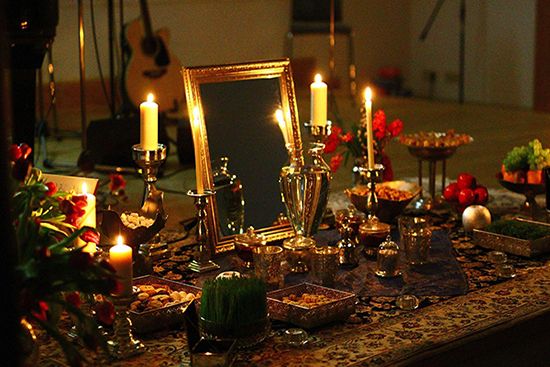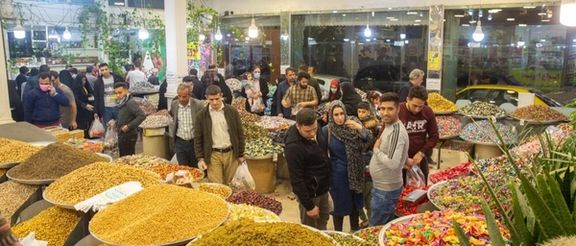Iranians Greet New Century As Uncertainties, Hardships Remain

Iranians mark the year 1401 of their calendar and the Spring Equinox feast of Noruz with uncertainties and economic hardships continuing into the new century.

Iranians mark the year 1401 of their calendar and the Spring Equinox feast of Noruz with uncertainties and economic hardships continuing into the new century.
For over two and half millennia, long before the advent of Islamification of the country in the 7th century AD, the people of Iran Shahr (Land of Iranians) have celebrated the New Year, Noruz (Nowruz), which falls on the first day of spring. Noruz literally translates into 'New Day'.
Noruz festivities begin on the exact moment of the equinox and are so important to Iranians that more than four decades of clerical rule -- which generally does not approve of pre-Islamic feasts and festivals as pagan customs -- has not been able to substitute anything for it or reduce its importance.
Noruz has remained the most important festive occasion for Iranians and its importance is such that even Supreme Leader Ali Khamenei always delivers a televised speech immediately after the turn of the year, sometimes from his hometown of Mashhad.
The calendar year 1401 officially begins on March 21 but people began festivities Sunday afternoon, March 20 as according to astronomical calculations, the Spring Equinox falls at exactly 15:33:00 GMT on March 20 this year. The day is a public holiday, followed practically by a two week break in most activities.

But the year, despite the many promises by President Ebrahim Raisi for improvement in people's welfare, is not ending well for many, including millions of pensioners who did not receive their monthly payments before the holiday began. Over one million have not been paid yet.
Failure to pay civil servants and pensioners is unprecedented in the history of the Islamic Republic. Payments had regularly been made even during the eight years of war with Iraq (1980-1988) during which Iran also faced with US sanctions.
Many others who were paid still had to struggle to make the usual purchases for the New Year as inflation in the past three years has been such that buying new clothes, ingredients for the traditional New Year dish (fish and herbed rice), fruits, nuts, and sweets to serve visitors has practically become impossible to afford for millions of families.
Clothing retailers say their sales are down to a fraction of previous years while according to officials of fruit and nuts wholesalers' unions, demand for the New Year has dropped by fifty percent in comparison with previous years. They maintain that the drop in sales is due to the unaffordable high prices.
Meanwhile, it was a disappointment to many that the talks in Vienna to restore the 2015 nuclear deal with world powers, the Joint Comprehensive Plan of Action (JCPOA), did not conclude before the end of the Iranian calendar year. The talks have not failed and may well result in an agreement in the next few days and the lifting of US sanctions which could help improve the economy.
The annual inflation rate is hovering above 40 percent. With people's purchasing power down so drastically, smaller businesses such as retailers are also finding it very difficult to survive. The market is too sluggish they say, and many are worried they will not be able to pay rents and employees in the coming year or go bankrupt if the sanctions are not lifted and the economic situation gets worse.